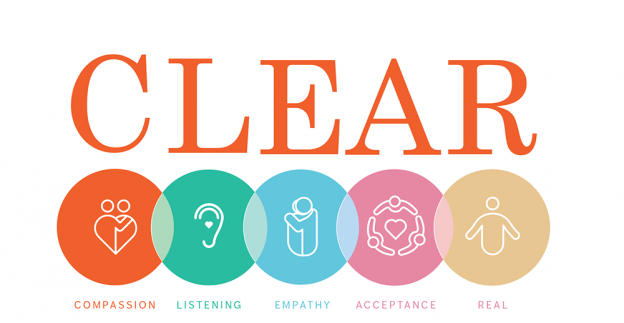Confidentiality
Trust is at the heart of I Am Here.
-
At I Am Here, we treat all conversations with utmost confidentiality. You cannot discuss what a person shares with you with anyone else, even if you think that this may be helpful.
-
If you believe there is an imminent risk that someone will be a danger to themselves or others, you must immediately call for emergency help or support. Do not leave the person on their own, and do not delay taking action.
-
Do not discuss a person’s situation with anyone else, including a fellow Tribe Member or Ambassador, even in a general sense, and even without using their name.
-
Protect the person’s identity. Honor the trust placed in you and honor their story.
-
Do not share, discuss, post, or repost others' personal information, such as contact details, conversations, situations, observations, or any identifiable information.
-
At the start of Show you care, ensure the person understands these ground rules of confidentiality.
Frequently Asked Questions
- A Team Member is a person working within an organisation.
- A Tribe Member is a Team Member who has completed the I Am Here: Tribe Members course and then becomes an advocate for the I Am Here movement.
- An Ambassador is a Tribe Member who has completed the I Am Here: Ambassadors course. An Ambassador has developed the courage, confidence and skills to act as a signpost to connect fellow Team Members, friends and family with the help and support they may need.
- Help build a culture of support.
- Promote the purpose of I Am Here to others.
- Recruit more Tribe Members.
There are many ways to Show you care, depending on what feels right for you, the other person and the situation. The I Am Here: Ambassadors course explores the appropriate ways to reach out and Show you care through different scenarios.
- Compassion – To show compassion is to have the desire to relieve the suffering of another person by showing genuine concern for their situation, acting with kindness and care and being there for them.
- Listening – You could say that listening actively is the most important skill that underpins I Am Here. Listening carefully involves ‘listening with all your senses’ to understand the person’s full message.
- Empathy – Showing empathy is the ability to step into another person’s shoes to understand the situation from their perspective.
- Acceptance – Total acceptance means putting aside your own opinions, values and bias. A person who feels accepted is more likely to trust you to guide them to the help and support on offer.
- Real – An Ambassador is real and authentic. This means showing up as yourself so that the person can also be themselves.

